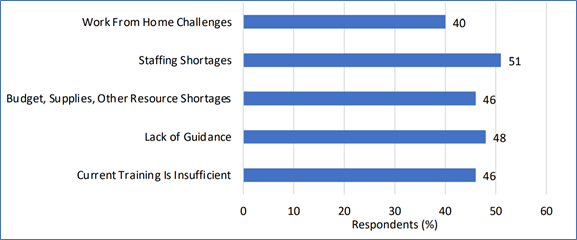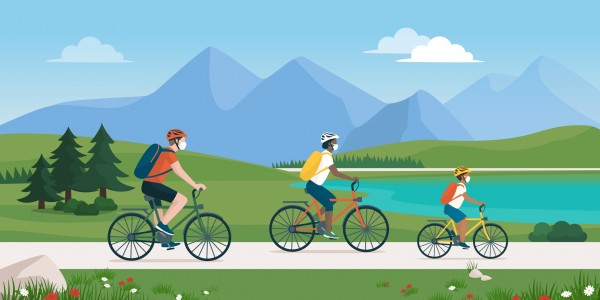Environmental health departments have had to rapidly adapt their existing programs during COVID-19 to ensure that critical public health functions are carried out, including food safety inspections and extreme weather response. However, many important environmental health activities, such as lead hazard control, may still have been postponed or even halted during the pandemic given resource constraints like lack of funding or limited staff availability. To support continuity in local environmental programs, the National Association of County and City Health Officials (NACCHO) has compiled evergreen resources from their federal, state, and local partners, as well as from non-governmental organizations and think tanks, to address the needs of environmental health staff during the pandemic. The resources can be access via this free, open-access Environmental Health and COVID-19 Resource Library.
In October 2020, the National Environmental Health Association (NEHA) released a report sharing information on the issues environmental health professionals have encountered during the COVID-19 pandemic. The report is based on data collected from July 15 through August 31, 2020 (see Figure 1). Eighty nine percent of respondents from local environmental health programs reported that they had been tasked with responsibilities outside the scope of their work, and 13% of all respondents reported that routine environmental health inspections (i.e., retail food establishments, recreational water, vector control) were not being conducted at the time of response. Another key finding from this report was that 80% of respondents from local environmental health programs agreed that they were emotionally exhausted by their work. This is particularly alarming considering that a pre-pandemic study reported an aging environmental health workforce in the United States, with approximately 26% planning to retire in the next five years.

Recognizing the need to support the environmental health workforce, NACCHO’s resource library contains up-to-date information, guidance, and tools from federal agencies like the Centers for Disease Control and Prevention and the Environmental Protection Agency, as well as from state and local agencies like the California Childcare Health Program and the Ohio Department of Health. The categories in the library represent major functions of environmental health that have been significantly impacted by COVID-19, including topics like wastewater surveillance that have gained prominence during this pandemic.
The resources are organized into the following categories:
- Education and Childcare: Resources in this section focus on how LHDs can work with local community partners and school administrators to ensure safe conditions in educational and childcare settings;
- Extreme Weather: Resources in this section highlight prevention and response strategies for communities affected by natural disasters while simultaneously addressing efforts to prevent the spread of COVID-19;
- Food Safety: In addition to health departments, consumers, as well as food handlers and servers, need to be informed of safety precautions and considerations amid COVID-19. Resources in this section of the library provide information and guidance around food safety in the context of the pandemic;
- Indoor Environments: Resources in this section address ventilation and filtration strategies and well as safer disinfection tools and methods for indoor environments, including settings such as shared housing. This section also features resources that address the reopening of buildings that may not have been in use for weeks or months at a time;
- Wastewater Surveillance: The wastewater surveillance section features tools that can help local health departments conduct wastewater surveillance to assess the extent of the COVID-19 outbreak in their communities;
- Health Equity: The resources available in this section can help identify strategies that promote equity throughout COVID-19 response activities.
NACCHO’s team would like to hear from you!
As the nation moves through the vaccination stage and into recovery and community resilience with a health equity and environmental justice focus, NACCHO’s team will continue to update this webpage with the latest information and resources as they become available.
Please send your feedback or new resource considerations to NACCHO’s environmental health and COVID-19 team at [email protected], or contact Emily D’Angelo ([email protected]) with questions or comments.

Share this Resource!
Use this communications toolkit from NACCHO to share this resource on social media, newsletters, and your blogsites.






